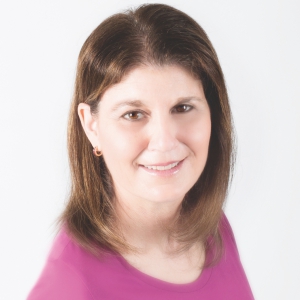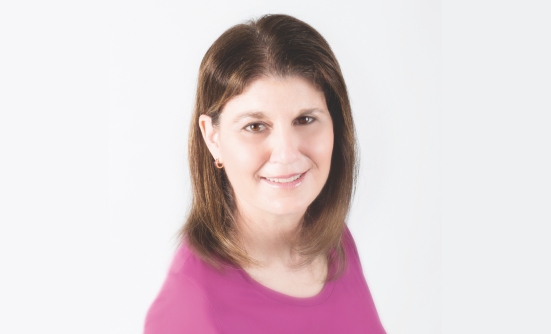
Being a cancer survivor can mean different things. Family members of patients with cancer who have had to survive the loss of their loved one and attempt to conquer the world without that person, are also cancer survivors. That is me.
Devastating News
In 2002, my mother called me with the news no child wants to hear. She had been diagnosed with ovarian cancer. My mom and I were incredibly close. As an only child in a very close-knit family, she was my best friend and confidant, and this news was devastating. The next 22 months were tough. My mother underwent 2 surgeries and many months of chemotherapy.
Self-Realization
I was working full time as a speech-language pathologist with patients with cancer at a hospital, and taking care of my parents (my father was also ill at the time), balancing our 2 households, and caring for all our pets. At that time, I realized just how strong I was. My mother had always instilled that strength in me, but I had never faced a challenge such as her cancer, and the likelihood of losing her.
For those 22 months I stood by my mother’s side as she so bravely fought against a ruthless cancer. We had many discussions about life, my goals, and how I felt I needed to influence the lives of my patients in a more meaningful way.
From Caregiving to Creating New Tools for Patients
Being a cancer caregiver taught me many things about patient and family needs, fears, desire for knowledge, and the importance of an organized system of information and the need to relieve emotional and financial burdens. Although I worked with patients with cancer in my job at the hospital, being on the other side of the diagnosis opened my eyes to a new understanding of life, of loss, and of patient needs. That new perspective was to inform my life in many ways going forward.
A month after losing my mother, I started working on my promise to her to increase my impact on the lives of the patients with whom I worked. My work as a speech-language pathologist with patients with head and neck cancer was to help them regain their speech and swallow function after surgery and radiation.
I loved the patients, and found the work challenging, but I wanted to make more of a difference. I began by listening to patients and caregivers talk about what they wished they had known before treatment, and the educational tools and resources they wished they had.
Using that information, I developed a head and neck cancer “pathway” for our hospital system. The pathway is a set of steps for all newly diagnosed patients to follow. By following that pathway, patients are ensured that they do not “fall through the cracks,” receive early education, and are given referrals to appropriate healthcare providers in a timely fashion.
Once the pathway was implemented, I realized that although patients’ practical support was in place, more emotional support was needed.
This realization led me to create a support group for patients, caregivers, and survivors so they could discuss their feelings and share ideas monthly. The pathway and the support group have proved to be valuable assets to patients and to the community.
Rehab Program for Patients with Cancer
The pathway and support group succeeded, but I felt there was still more work to be done to help my patients with head and neck cancer meet their specific needs. Collaborating with my physical and occupational therapy colleagues, we created a rehabilitation program that encompassed physical, speech, and occupational therapy to meet the complex needs of patients with head and neck cancer.
To our and our patients’ delight, we soon started to see improved outcomes; our patients were recovering faster, feeding tubes were being removed earlier, and patients were returning to their daily activities. In their “new normal,” the patients were now doing better than before the new program was implemented.
My Evolving Survivor’s Journey
I guess success breeds the desire to achieve more, or I was still on my “survivor’s journey” to make things better for my patients and to honor my mother. My mom was a big animal lover, and we had dogs all my life.
It therefore seemed fitting to start a pet therapy program! The idea is that registered therapy dogs work alongside patients with cancer to reduce pain, stress, and anxiety during therapy sessions.
Since making that decision, I have trained and registered 5 of my personal English Bulldogs to be therapy dogs for patients in our clinic.
In many cases, the patients and caregivers just need something to lighten their day by a smile, and the therapy dog always fills that need. In addition, I have had patients who prefer to practice speech by talking to my dogs, or they have a pet themselves and want to practice commands they will use at home. Some patients request appointments on the day my dog will be there.
The program has been extremely successful and fulfilling. I know my mom would have loved it and would have had great joy knowing that something so meaningful to her brought so much happiness to others.
My survivor’s journey was not yet complete. I soon began to realize just how little knowledge our community had regarding head and neck cancer, and that many of my patients, even those with health insurance, did not always have the financial resources to meet their medical needs.
Addressing these 2 areas became my new mission. To bring information to others, I was allowed to create an online module that can be used by the hospital’s employees for training; I spoke with EMT groups regarding laryngectomees’ specialized needs; and partnered with a local nonprofit organization, 21st Century C.A.R.E. (https://21stcenturycare.org).
For the past 10 years, I have worked with 21st Century C.A.R.E. to facilitate free head and neck cancer screenings in our community, and to hold community education dinners with speakers on topics of interest. The response has been great, and these screenings led to early detection of these cancers. We are all aware of the importance of early detection in saving lives.
The second concern, realizing that not all patients were getting the treatment they need because of financial issues, also needed to be addressed, but how? Again, I partnered with that nonprofit organization, and for the past 9 years, we have hosted a 5K run/2-mile walk in our community to raise awareness of head and neck cancer and to raise funds.
Financial Assistance Program
The money raised allowed me to create a financial assistance program for patients with head and neck cancer in Southwest Florida. We have provided funding for patient services and supplies. The funds have no restrictions. Patients can have a job, health insurance, own a home, and still qualify if they demonstrate a need.
These past 17 years since losing my mom have taught me many things about life, compassion, and empathy. Losing her changed my world forever, but it has also given me a mission to make the lives of other patients with head and neck cancer better.
My promise to my mom is ongoing, and I am always thinking of new ideas and programs to help patients with head and neck cancer where I live, and beyond. I believe she is the driving force in all I do.
I, too, am a survivor, and I can do my best to conquer cancer by making a difference in the lives of others. I hope other survivors do the same.





